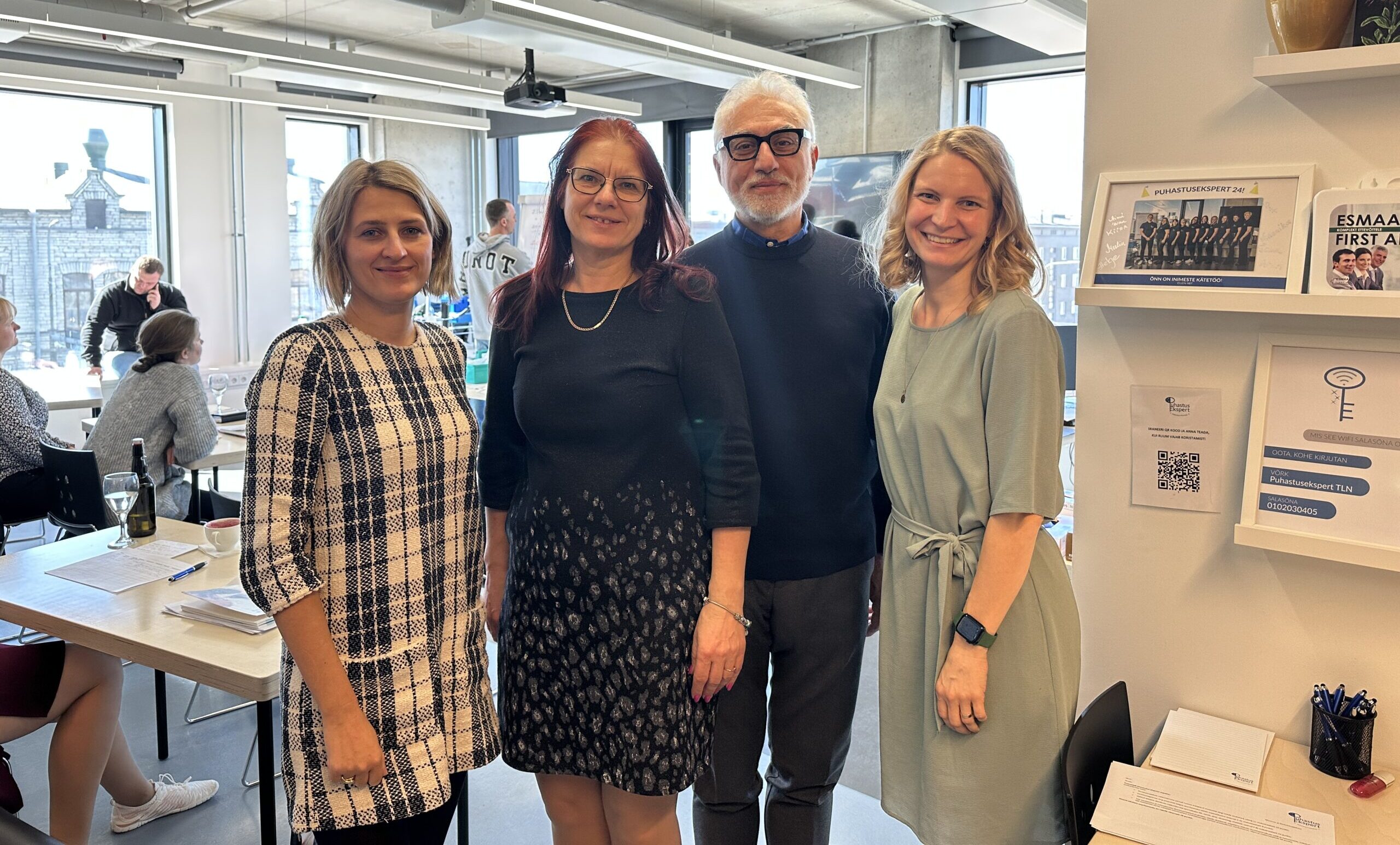info@puhastusekspert.ee +372 5611 1048
Cleaning is a Science: International Experts Shared Knowledge in Tallinn
 Experts from ISSA emphasized that cleaning is not merely an activity or an opinion, but a part of quality management and a science that requires a common understanding across Europe.
Experts from ISSA emphasized that cleaning is not merely an activity or an opinion, but a part of quality management and a science that requires a common understanding across Europe.
on April 8–9, 2025, experts from ISSA visited Tallinn, with the aim of sharing experiences in cleaning sector development and collaborating to ensure that professional cleaning examinations within the EQF framework are more widely applicable across Europe. This opportunity arose thanks to Erasmus+ mobility project no. 2024-1-EE01-KA121-VET-000236654, which supported inviting the experts to Estonia and provided an opportunity to share knowledge and experience in an international environment.
Over the course of two days in Tallinn, activities included an on-site observation of the theoretical and practical parts of the professional examination, participation in professional examination preparation training, a consortium meeting hosted by SOL Baltics, and an explanation of the CIMS quality standard processes.
The main objective was to exchange international experience in the cleaning sector and to gain an overview of how in Estonia EQF professional examinations are organized and how such a system could be implemented more broadly across Europe. Opportunities were also explored for developing the quality of cleaning work through a unified standard in Europe.
During the meeting, ISSA experts shared in-depth knowledge about the CIMS standard (Cleaning Industry Management Standard), which is an internationally recognized quality management framework in the cleaning services sector. CIMS is the first consensus-based management standard that defines the key characteristics of a successful and high-quality cleaning organization.
The CIMS standard focuses on five key areas:
-
Quality Systems: Ensures the existence of a documented quality management system that promotes continuous improvement and consistent service delivery.
-
Service Delivery: Standardized cleaning procedures and protocols that ensure a thorough and efficient cleaning process.
-
Human Resources: Emphasizes well-trained and qualified personnel, ensuring that cleaning tasks are performed by competent and reliable professionals.
-
Health, Safety, and Environmental Stewardship: Utilizes environmentally friendly products and practices, minimizing the use of harmful chemicals and improving indoor air quality.
-
Management Commitment: Commitment to quality, efficiency, and overall client satisfaction.
Implementing the CIMS standard helps cleaning organizations improve their operational efficiency, increase client satisfaction, and gain a competitive advantage in the market. Through standardized processes and quality control measures, consistent and high-level cleaning services are ensured, meeting client expectations.
Cleaning Starts with Design
During the two days, the role of building design and interior architecture in providing cleaning services was also highlighted. Cleaning planning should begin already during the building design phase and involve collaboration with property maintenance specialists. This allows for the creation of sustainable solutions that save time and labor resources.
As an instructive example, the glass roof of Fiera Milano, one of Europe’s largest exhibition centers, was presented. The complex comprises numerous pavilions and buildings, many of which feature extensive glass surfaces, including large glass roofs and facades. These glass surfaces give the buildings a modern and spacious appearance, but their maintenance and cleaning are complex and require specialized methods and equipment. Before the 2015 World Expo, the cleaning of these glass surfaces was undertaken – it took 130 people an entire month. This was such a costly undertaking that such large-scale cleaning of the glass surfaces has not been attempted since.